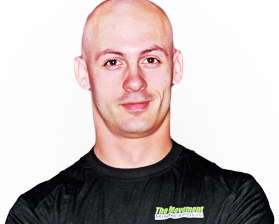
The other day I was talking to someone I met recently and he was asking me about what I do for work. I said something like well I write a lot and teach seminars and he asked, “What do you teach?”
Normally I’d say something about fitness, etc. but this time for some reason it made me pause and think about it.
The thing is, I do of course teach specific fitness or training techniques and strategies. I can teach you ways to improve your deadlift, or strategies to tweak your nutrition, how to build the strongest possible bent press, how to improve your run times with less effort, and dozens of other specific, discrete, useful things.
But that’s not what I teach.
What I’m (trying) to teach is an entire operating system for how to approach everything you do.
Take biofeedback for example. I can, and gladly will, teach you how to use biofeedback testing in 30 seconds. The juice isn’t in the technique itself, it’s in the application of the technique. After those 30 seconds, you can ascertain in a moment how useful any one of a million different movements or therapy interventions will be most useful to you in any given moment.
It literally abdicates the entire need for long discussions about when and where to use certain things and how they’re good or bad. There is zero point in wasting that time trying to hash out “the evidence” or other rationalistic approaches to determining efficacy.
You can just test it, for yourself, right now.
That’s just one example of how you can apply a new operating system that changes your approach to fitness and everything else. “What is best for me?” is a much more fundamental, interesting, and useful question than “What is best?”
The latter is a great rabbit hole for academics and people with time to waste. But the former is how you figure out what foods, activities, people, jobs, and environments make you thrive.
The only downside to my approach, if you want to call it that, is that I expect a lot more from you. I’m not going to give you a lot of answers, I’m only going to provide you with better questions to ask. It’s more work for you, but you get out what you put in.


Leave a Reply